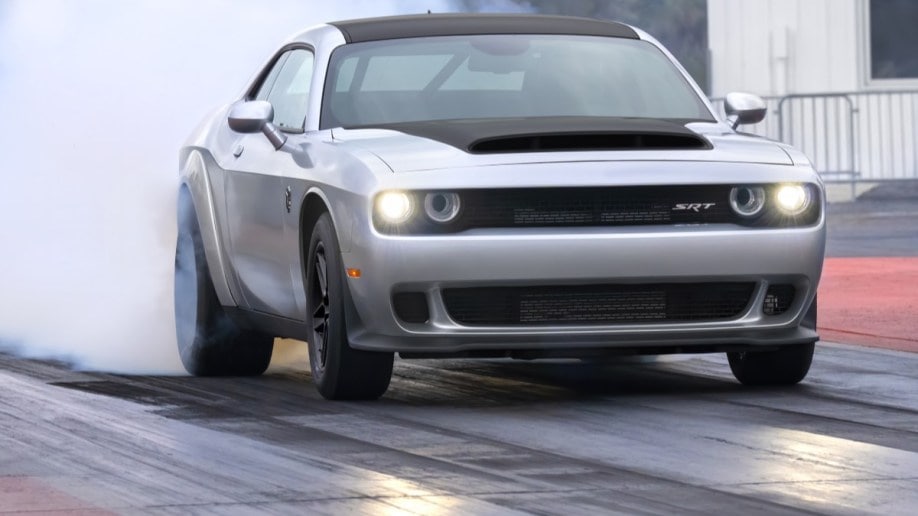
It carries an MSRP of $96,666 (cute). A few factory options are available, but they’re priced to discourage buyers from ordering them. A sunroof, for instance, adds nearly $10,000. Why? Probably because it adds weight, and Dodge would rather you buy the fastest Demon you can.
Cars like that are typically sold only with large dealer markups.
But automakers know that markups are bad for their image. And Dodge seems to view this car as key to its image — a love letter to the enthusiasts that have made the brand what it is today.
The More You Pay, the Longer You Wait
So, the company has adopted unique strategies to stop dealers from selling Demons with hefty markups. Dodge believes the plan is working.
A company spokesperson tells Motor Trend that Dodge has received 1,000 orders for the car (out of about 3,000 it plans to build), and “630 of them — 63 percent — came back notarized by the buyer and seller that the car was sold at MSRP.”
Notarized?
Yes. That’s the key to the company’s anti-price-gouging plan.
The spokesperson tells MT, “Dodge has a special ordering process. The process includes a document — an acknowledgment form — that has to be signed by the customer, signed by the dealer and notarized,” promising that the dealership sold the car for list price.
It’s possible to order a Demon without signing the document. But, Dodge says, it will build cars sold at MSRP first. Cars sold over MSRP automatically go to the end of the factory line.
Overpaying actually makes you wait longer for your car.
The price agreement is just one of many unusual documents a Demon buyer has to sign. Others include a promise not to drive in the rain or in cold weather. At all. Ever. It’s that kind of car.
Motor Trend notes, “It is very possible that at least some of those 630 sales were done by exploiting a loophole.” In one known scheme, a dealership “sells” the car to an employee for MSRP, then resells it for a much higher price — technically as a used car. Such sales, however, can violate warranties.







